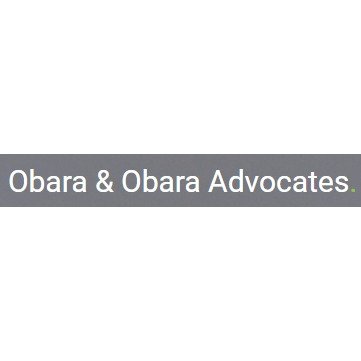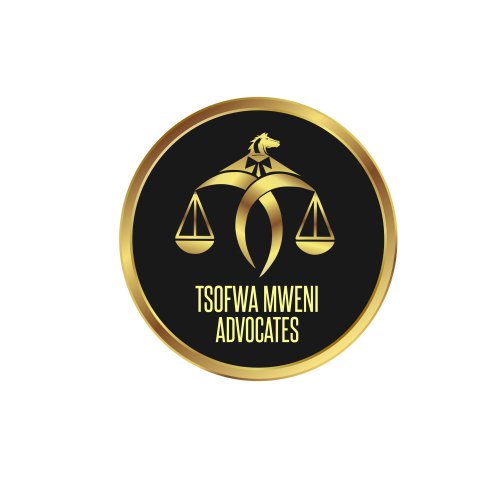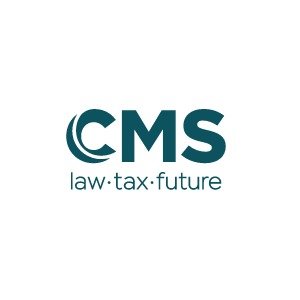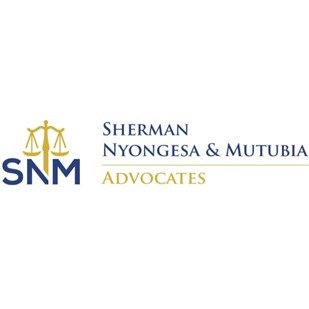Best Project Finance Lawyers in Mombasa
Share your needs with us, get contacted by law firms.
Free. Takes 2 min.
List of the best lawyers in Mombasa, Kenya
Legal guides written by Adroit Law LLP:
- Kenya Launches Digital Nomad Visa: A Gateway for Remote Workers
- Navigating the Payment System License Maze in Kenya
- Navigating the Complexities of Mining Licenses and Permits in Kenya: A Look into Artisanal and Large-Scale Operations
About Project Finance Law in Mombasa, Kenya
Project Finance is a specialized area of law and finance that focuses on funding large infrastructure and industrial projects. In Mombasa, Kenya, which serves as a major port city and commercial hub, project finance is essential for initiatives such as roads, ports, energy, water, and real estate developments. These projects typically involve significant capital, multiple stakeholders, and complex agreements. The legal framework covers how such projects are structured, how risks are allocated, security arrangements, regulatory compliance, and the roles and rights of financiers, sponsors, contractors, and government entities.
Why You May Need a Lawyer
Project finance transactions are highly complex and often involve substantial financial commitments, making legal expertise crucial. Common situations when legal assistance may be required include:
- Negotiating and drafting project agreements, such as loan agreements or joint venture contracts
- Ensuring regulatory and statutory compliance with Kenyan law
- Structuring the project to allocate and mitigate financial and operational risks
- Securing licenses and approvals from national and county authorities in Mombasa
- Advising on land acquisition and environmental regulations
- Resolving disputes between stakeholders
- Arranging security for lenders, including charges over project assets
- Facilitating syndication or refinancing of loans
- Managing tax implications and optimizing project structure
- Overseeing compliance with cross-border regulations where foreign investors are involved
Having a project finance lawyer ensures your interests are protected and the project complies with all relevant legal and regulatory frameworks.
Local Laws Overview
In Mombasa, project finance activities are governed by several national and local laws. Some of the key legal aspects include:
- The Public-Private Partnerships Act, which provides the legal framework for public-private collaboration
- The Companies Act, regulating how project companies are formed, governed, and dissolved
- Secured Transactions Act and related laws dealing with the granting and registration of securities
- The Environmental Management and Coordination Act, which ensures projects conform to environmental standards
- Land laws, including the Land Act and Land Registration Act, determining ownership and rights over project land
- County Government by-laws in Mombasa, which may impact permits, zoning, and local approvals
- Planning and Building Regulations, addressing site acquisition, construction, and operational requirements
- Tax laws, including those related to VAT, income tax, and withholding taxes on payments to contractors or service providers
Because these laws are subject to updates and can be interpreted differently, legal advice is key to successful project implementation.
Frequently Asked Questions
What is project finance and how does it differ from traditional financing?
Project finance is a method of funding in which the lenders look primarily to the future cash flows generated by a project as the main source of repayment, rather than relying on the balance sheet of the project sponsors. Traditional financing often depends on the creditworthiness of the company or its assets.
Which sectors in Mombasa commonly use project finance structures?
Key sectors include energy, transport (such as ports and roads), real estate, tourism developments, water and sanitation projects, and sometimes major agricultural enterprises.
What parties are usually involved in a project finance transaction in Mombasa?
The main parties often include project sponsors or developers, lenders (such as banks), contractors, government entities, insurance providers, and occasionally, international investors or multilateral institutions.
What types of collateral are often used to secure project finance loans?
Common collateral can include charges over project assets, land leases, equipment, receivables, and accounts where project revenues are deposited.
Are there special requirements for foreign investors in Mombasa?
Yes, foreign investors may need to comply with specific registration requirements, investment approvals, and foreign exchange controls. They must also conform to sector-specific limitations on foreign ownership.
How are public-private partnership (PPP) projects regulated in Kenya?
PPPs are governed under the Public-Private Partnerships Act, which outlines the procedures for procurement, approvals, and risk sharing between the public and private sectors.
Does the government guarantee project finance loans?
While the government may sometimes provide guarantees or letters of support for strategic projects, most project finance structures are non-recourse and depend on the success of the project for repayment.
What are the key risks in project finance transactions?
Typical risks include construction delays, cost overruns, regulatory changes, environmental issues, revenue shortfalls, and foreign exchange volatility.
What approvals or licenses are necessary to begin a major project in Mombasa?
Common approvals include environmental impact assessments, construction permits from Mombasa County, business registrations, sectoral licenses, and where required, land use or change of land user permits.
How can disputes in project finance be resolved?
Disputes can be resolved through Kenyan courts, but contracts may sometimes provide for arbitration or mediation to ensure a faster and confidential resolution process.
Additional Resources
To assist with your project finance needs, consider reaching out to the following:
- State Department for Public-Private Partnerships in Kenya
- Ministry of Lands and Physical Planning
- Mombasa County Government
- Kenya Investment Authority
- Capital Markets Authority for capital raising regulations
- Law Society of Kenya for referrals to specialized lawyers
- Kenya Bankers Association for banking and finance matters
- Kenya National Chamber of Commerce and Industry (Mombasa Chapter)
Next Steps
If you are interested in pursuing or are already involved in a project finance transaction in Mombasa, it is important to consult with a lawyer who specializes in this field. Begin by outlining your project goals, the parties involved, and any preliminary agreements or government interactions you have already had. Gather relevant documents, such as title deeds, permits, and official correspondence. Schedule a consultation with a qualified lawyer to discuss the structure, regulatory requirements, and potential risks of your project. A legal expert can help you navigate local laws, draft and negotiate agreements, and ensure compliance throughout the lifecycle of your project.
Always seek tailored advice to safeguard your interests and the long-term success of your project in Mombasa, Kenya.
Lawzana helps you find the best lawyers and law firms in Mombasa through a curated and pre-screened list of qualified legal professionals. Our platform offers rankings and detailed profiles of attorneys and law firms, allowing you to compare based on practice areas, including Project Finance, experience, and client feedback.
Each profile includes a description of the firm's areas of practice, client reviews, team members and partners, year of establishment, spoken languages, office locations, contact information, social media presence, and any published articles or resources. Most firms on our platform speak English and are experienced in both local and international legal matters.
Get a quote from top-rated law firms in Mombasa, Kenya — quickly, securely, and without unnecessary hassle.
Disclaimer:
The information provided on this page is for general informational purposes only and does not constitute legal advice. While we strive to ensure the accuracy and relevance of the content, legal information may change over time, and interpretations of the law can vary. You should always consult with a qualified legal professional for advice specific to your situation.
We disclaim all liability for actions taken or not taken based on the content of this page. If you believe any information is incorrect or outdated, please contact us, and we will review and update it where appropriate.

















